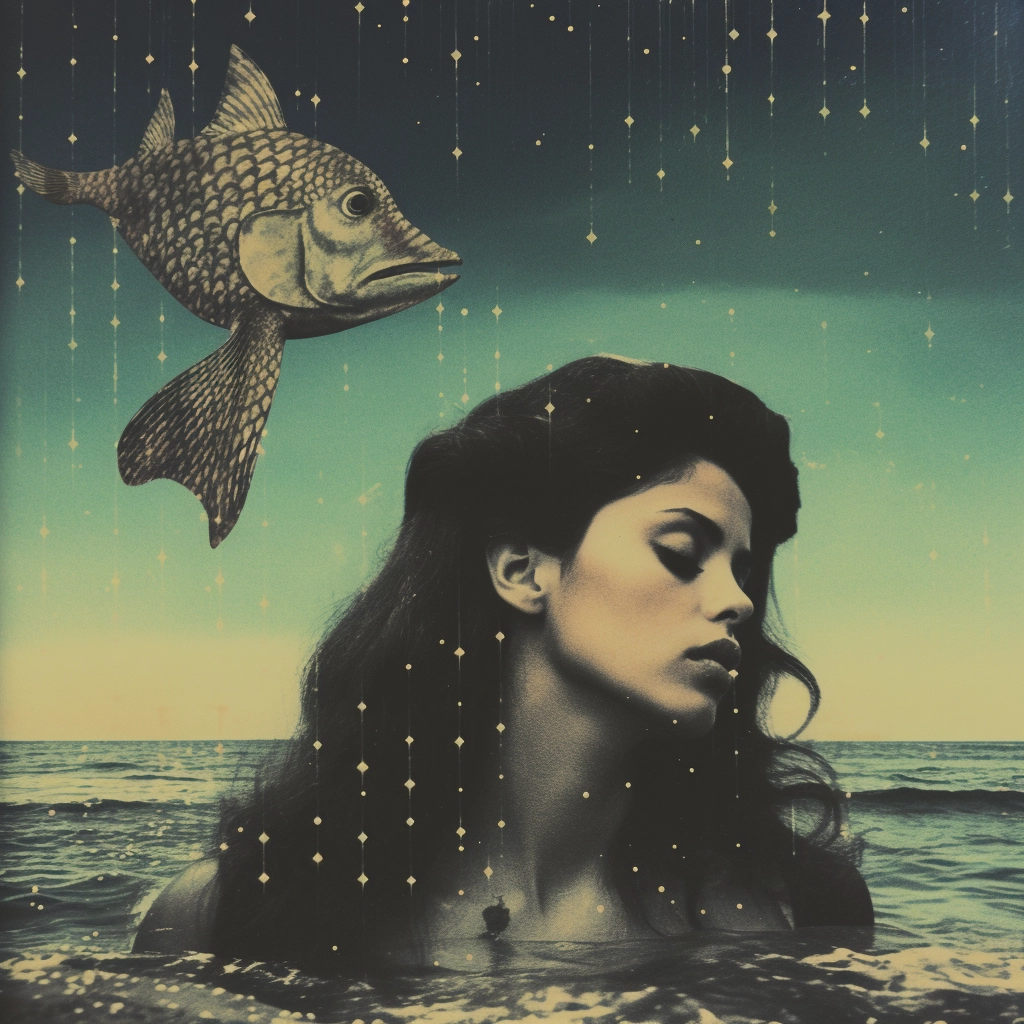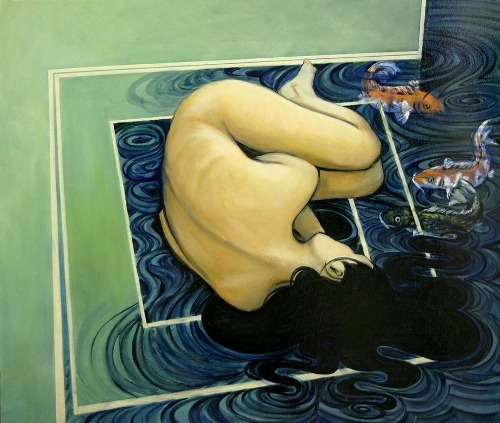 Pisces, being a water sign, is deeply connected to the vast and mysterious realm of the ocean. The ocean is a haven where Pisces encounters the enchanting depths but also a host of challenges associated with their desire to escape from earthly reality. The oceanic environment is where Pisces expresses their inner mystery, mysticism, and imaginative stirrings. The transcendent beauty of water, symbolizing far-reaching emotions, creates a sublime atmosphere that beckons the Piscean soul. The glamour and enchantment of the underwater world seem to defy logic, offering an escape from the harshness of everyday reality.
Pisces, being a water sign, is deeply connected to the vast and mysterious realm of the ocean. The ocean is a haven where Pisces encounters the enchanting depths but also a host of challenges associated with their desire to escape from earthly reality. The oceanic environment is where Pisces expresses their inner mystery, mysticism, and imaginative stirrings. The transcendent beauty of water, symbolizing far-reaching emotions, creates a sublime atmosphere that beckons the Piscean soul. The glamour and enchantment of the underwater world seem to defy logic, offering an escape from the harshness of everyday reality.
Pisces’ aversion of reality can sometimes lead to a perilous attraction to the deep waters of the unconscious. The seemingly infinite supply of psychic renewal and creativity found in ocean-like experiences can easily seduce a Piscean, drawing them into a world that blurs the boundaries between reality and fantasy. Some argue that the intense immersion in this oceanic world may lead to self-destruction, albeit in a passive manner. The very qualities that make this other realm so appealing to Pisces—its depth and boundless emotions—can become dangerous. If one succumbs entirely to this otherworldly realm, it might result in harmful addictions, mental illnesses, or various forms of avoidance behavior.
If you get too cozy in this underwater dreamland, you might find yourself swimming in some pretty murky waters. Pisces gets caught in a riptide of the mind, pulling them away from the solid shores of reality. The ocean becomes this seductive siren, singing a song that’s hard to resist. It’s a love affair, but like any passionate romance, it comes with its own set of challenges. Some say it’s a bit like dancing on the edge of self-destruction. Pisces, with their disdain for the mundane, can get so sucked into this deep sea of dreams that they forget where the surface is. It’s like they’re floating in this boundless pool of emotions, and if they’re not careful, they might drown in the very beauty they’re trying to embrace.
Liz Greene says that Pisces has a deep connection to the collective psyche and the dual nature of being both flesh and spirit. According to Greene, Pisces individuals are not inherently darker or lighter than other signs, but they possess a heightened sensitivity to the deep currents of the collective unconscious. The blurred sense of individual identity in Pisces, as Greene suggests, makes them more open to a universal perception of life. The oceanic realm associated with Pisces is described as a shared space for humanity, capable of both destructive and creative forces.
However, the astrologer highlights a challenge for Pisces: the need to reconcile their dual nature, balancing the otherworldly and the earthly. It requires an acceptance of both their spiritual and physical dimensions. To achieve greater harmony, Pisces must establish a balance, incorporating a daily routine and grounding elements in their lives. Despite their deep connection to the collective unconscious, they are encouraged to engage with the everyday world through proper employment, daily routines, and social interactions.
Pisceans have to come to terms with the fact they’re not just floating spirits; they’re flesh-and-blood too. They’re both flesh and spirit dealing with the real and the unreal at the same damn time. Pisces, apparently, need a bit of structure in their lives: routines, a daily grind, and something to anchor them down. It’s like, “Hey, Pisces, get a day job, mingle with the Earthlings, and bring some of your dreamy magic into the real world.” In a nutshell, Liz Greene is telling Pisces, “You’re the artists of the depths, but don’t forget to pay the bills and chat with the neighbors.”
The sign of Pisces can often feel like a “fish out of water,” a profound sense of disconnection and disorientation, perceiving themselves as being out of touch with everyday reality. This sentiment goes beyond a sense of unfamiliarity; it encompasses a feeling of a deep mismatch with the external world. As this overwhelming sense of detachment persists, it can manifest in various physical and psychological manifestations. Individuals who struggle with this existential disconnect may find themselves susceptible to a range of health issues, echoing the mind-body connection that has long been recognized in holistic approaches to well-being.
One common manifestation is an increased predisposition to allergies. The body’s immune system is linked to mental and emotional states, but it may become hyperreactive in response to the perceived stress of feeling out of sync with reality. Allergic reactions can serve as physical manifestations of the internal turmoil, expressing themselves in responses to environmental triggers that might otherwise be benign. Oversensitive skin becomes another physical expression of this inability to be in reality or over-sensitivity to life. The skin, as the body’s largest organ and a conduit between the internal and external environments, can reflect the heightened sensitivity experienced on a deeper, emotional level. Skin conditions and irritations may arise as the body attempts to externalize and cope with the internal discord. Asthma, a respiratory condition often exacerbated by stress, can also find its roots in this sense of detachment. The breath, intimately tied to emotions and the perception of the surrounding world, may become labored as the individual struggles to find a harmonious connection with their environment.
Pisces individuals experiencing this state may find themselves overwhelmed by stimuli that others might perceive as ordinary. Everyday sounds, sights, and even social interactions can become sources of distress, contributing to a perpetual sense of being an outsider in a world that seems foreign. It’s no wonder they often feel like a fish out of water. When they’re at a party, for instance, while others are buoyed by the energy, they might find themselves seeking refuge from the lights that are too bright, the music that’s too loud, and the conversations that feel like they’re happening through a foggy haze. It’s like trying to swim upstream in a river of sensory overload, and it can leave them feeling alienated, a solitary fish yearning for the comfort of its quiet, underwater home.















